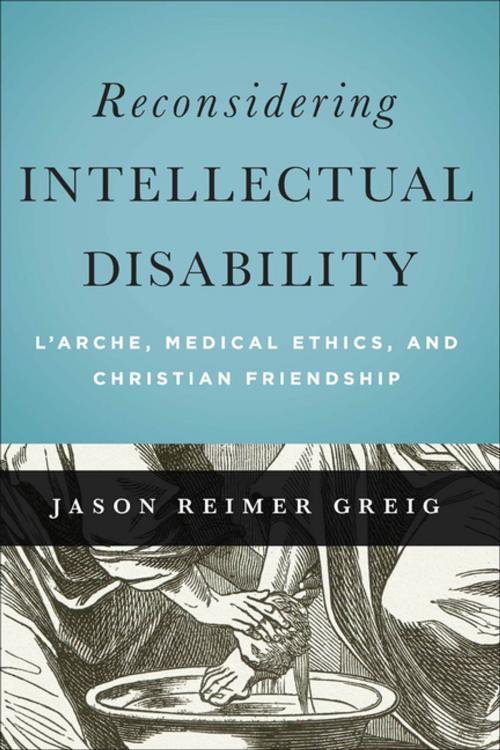Reconsidering Intellectual Disability
L'Arche, Medical Ethics, and Christian Friendship
Nonfiction, Social & Cultural Studies, Social Science, Disability, Religion & Spirituality, Theology, Christianity| Author: | Jason Reimer Greig | ISBN: | 9781626162440 |
| Publisher: | Georgetown University Press | Publication: | November 2, 2015 |
| Imprint: | Georgetown University Press | Language: | English |
| Author: | Jason Reimer Greig |
| ISBN: | 9781626162440 |
| Publisher: | Georgetown University Press |
| Publication: | November 2, 2015 |
| Imprint: | Georgetown University Press |
| Language: | English |
Drawing on the controversial case of “Ashley X,” a girl with severe developmental disabilities who received interventionist medical treatment to limit her growth and keep her body forever small—a procedure now known as the “Ashley Treatment”—Reconsidering Intellectual Disability explores important questions at the intersection of disability theory, Christian moral theology, and bioethics.
What are the biomedical boundaries of acceptable treatment for those not able to give informed consent? Who gets to decide when a patient cannot communicate their desires and needs? Should we accept the dominance of a form of medicine that identifies those with intellectual impairments as pathological objects in need of the normalizing bodily manipulations of technological medicine?
In a critical exploration of contemporary disability theory, Jason Reimer Greig contends that L'Arche, a federation of faith communities made up of people with and without intellectual disabilities, provides an alternative response to the predominant bioethical worldview that sees disability as a problem to be solved. Reconsidering Intellectual Disability shows how a focus on Christian theological tradition’s moral thinking and practice of friendship with God offers a way to free not only people with intellectual disabilities but all people from the objectifying gaze of modern medicine. L'Arche draws inspiration from Jesus's solidarity with the "least of these" and a commitment to Christian friendship that sees people with profound cognitive disabilities not as anomalous objects of pity but as fellow friends of God. This vital act of social recognition opens the way to understanding the disabled not as objects to be fixed but as teachers whose lives can transform others and open a new way of being human.
Drawing on the controversial case of “Ashley X,” a girl with severe developmental disabilities who received interventionist medical treatment to limit her growth and keep her body forever small—a procedure now known as the “Ashley Treatment”—Reconsidering Intellectual Disability explores important questions at the intersection of disability theory, Christian moral theology, and bioethics.
What are the biomedical boundaries of acceptable treatment for those not able to give informed consent? Who gets to decide when a patient cannot communicate their desires and needs? Should we accept the dominance of a form of medicine that identifies those with intellectual impairments as pathological objects in need of the normalizing bodily manipulations of technological medicine?
In a critical exploration of contemporary disability theory, Jason Reimer Greig contends that L'Arche, a federation of faith communities made up of people with and without intellectual disabilities, provides an alternative response to the predominant bioethical worldview that sees disability as a problem to be solved. Reconsidering Intellectual Disability shows how a focus on Christian theological tradition’s moral thinking and practice of friendship with God offers a way to free not only people with intellectual disabilities but all people from the objectifying gaze of modern medicine. L'Arche draws inspiration from Jesus's solidarity with the "least of these" and a commitment to Christian friendship that sees people with profound cognitive disabilities not as anomalous objects of pity but as fellow friends of God. This vital act of social recognition opens the way to understanding the disabled not as objects to be fixed but as teachers whose lives can transform others and open a new way of being human.















